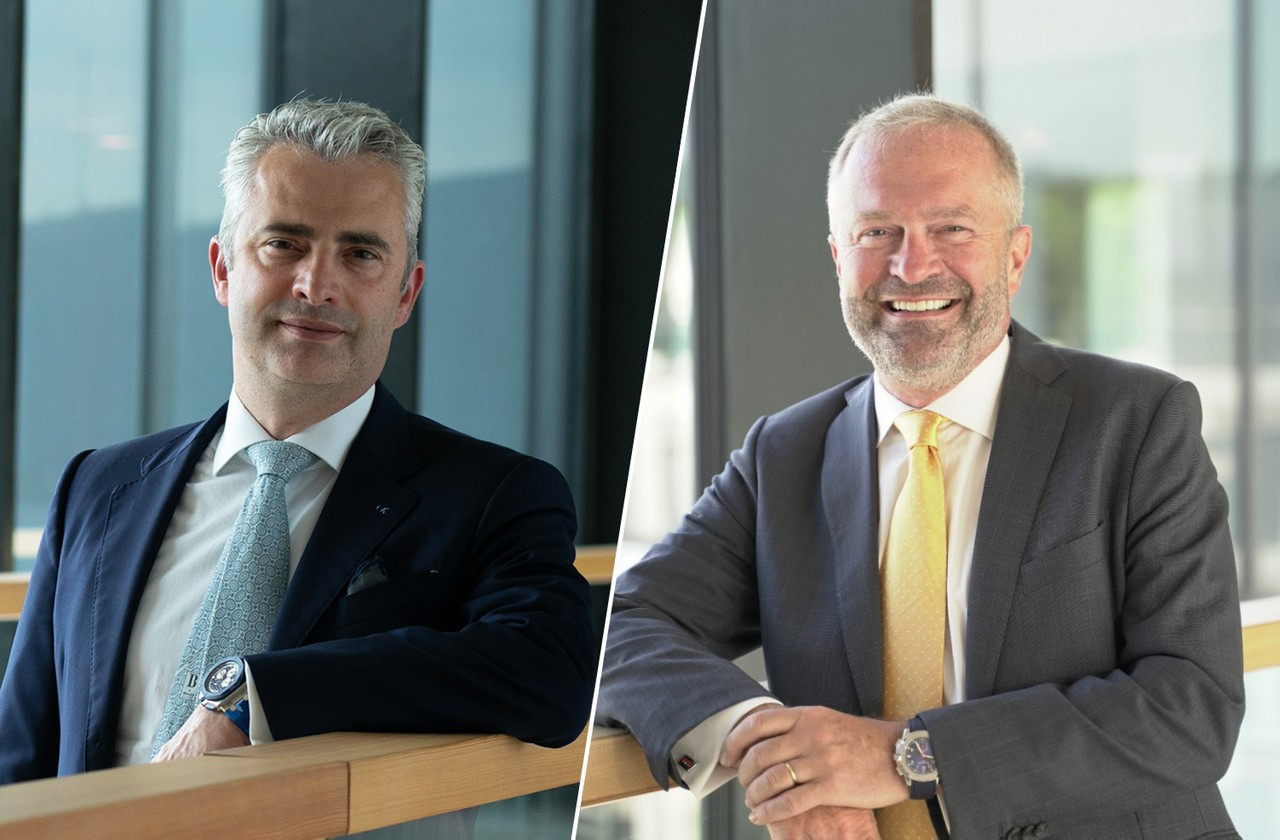CEO of Caceis, Managing Director of Citi, Clients and Markets Leader at PwC, José-Benjamin Longrée joined the ranks of EY on 1 July, as Partner, Managed services leader. This "summer transfer" has been carefully considered and is part of a medium and long-term strategic vision of EY Luxembourg, "certainly not made to weaken one side, but to strengthen our own", says Olivier Coekelbergs, Managing Partner.
Olivier Coekelbergs: It is actually quite simple. We believe that firms like EY, which have long focused on the human factor--putting the right people in the right departments, with the right knowledge and expertise--will retain this aspect in the long term, but that it will be supplemented by a technological dimension that will be increasingly important, and which will affect all the "professional services" that a firm like EY provides to its clients. In terms of auditing, of course, but also in terms of what we call 'managed services'. It was in this context that we met José and asked him to join us. We have a clear desire to upgrade the technology and data optimisation in all our services: that is the real starting point for this move.
José-Benjamin Longrée: The particularity of a firm like EY in the "managed services" sector is that it offers its clients not only the platforms but also the grey matter that goes with them. To onboard, to explain, to be at the client's side throughout the duration of the service. This is an important part of EY's strategy and we were perfectly in tune with it.
How could we define "managed services?
Olivier Coekelbergs: It's the same thing in the tax sector: tax structuring services have given way to real time tax reporting. The same is true in the fund sector with a need to collect data, to exploit it and to be able to produce the reports requested by investors, regulators and other counterparties.
What is the difference between managed services and one-off mission outsourcing?José-Benjamin Longrée: Recurrence is very important and makes a difference. Managed services" is a repeated service, which has been concluded for the long term. Another differential element is that the contribution of the teams does not 'dry up' the client, there is a real partnership. It's very intimate when you share your data with someone. The managed services provider will enter into the intimacy of the client, offer him services with added intellectual value, etc. and will contribute to relieving him on the one hand and enriching him on the other. Unless there is an emergency, the idea is not to do all the work, the client must retain control. This is necessary as soon as there is outsourcing. But this is clearly a partnership idea. We want to enrich the client without draining him, while allowing him to work at a lower cost.
It's a real partnership with the client...?
Josée-Banjamin Longrée: Yes, because it's a culture change for the client as well. But we feel that there is a demand when we are in the market. Some people have needs without even knowing it. But in a few years' time, managed services will be something that is integrated. I don't know how long it will take to have all the dishes on the restaurant's menu, but we will work on it.
José-Benjamin Longrée: An additional success factor is that we are right in the Luxembourg DNA. The range of services is diversified, but one of the great successes of the Luxembourg financial centre is to have offered the "transfer agency", at European and even global level, which weighed heavily on the client. It's a bit the same here, there are a lot of things that we offer in terms of reporting, accounting, corporate tax, etc. that bother clients and for which Luxembourg will not only have a system service but also offer the intellectual service that goes with it.
José-Benjamin Longrée: My favourite area for years has been fund distribution. So compliance, which is obviously very present in managed services. But we must not lose sight of the fact that links still exist with many other services and that the primary objective is to bring these services together in an interactive platform for the benefit of the client.
Olivier Coekelbergs: All forms of regulatory and fiscal reporting are obviously concerned. We must also bear in mind that the reflection that we are conducting and the change that this will generate in our approach, particularly via the recruitment of José, is part of a much more global approach at EY. The initiative is not exclusive to Luxembourg. We are a truly integrated firm and so the approach is at least at European level, and even global for certain subjects. All these platforms will therefore find part of their genesis elsewhere. For some of them via our American colleagues, for others via our European colleagues, and they themselves will involve us in some of their issues.
Olivier Coekelbergs: There is a team that already exists, many things were developed by José's predecessor, Bernard Lhoest, who created very solid foundations in the field,... José's arrival will serve to accelerate these subjects and services. But one of José's roles will be to flesh out this team and make it grow.
José-Benajmin Longrée: I have worked for several large firms and none of them went bankrupt when I left. No one is indispensable. Perhaps at some point you find yourself less in the relative project where you are, and subjectively I found the EY project to be a very beautiful project. Then there were discussions which were very friendly. But there are specific rules to respect, that's for sure.
